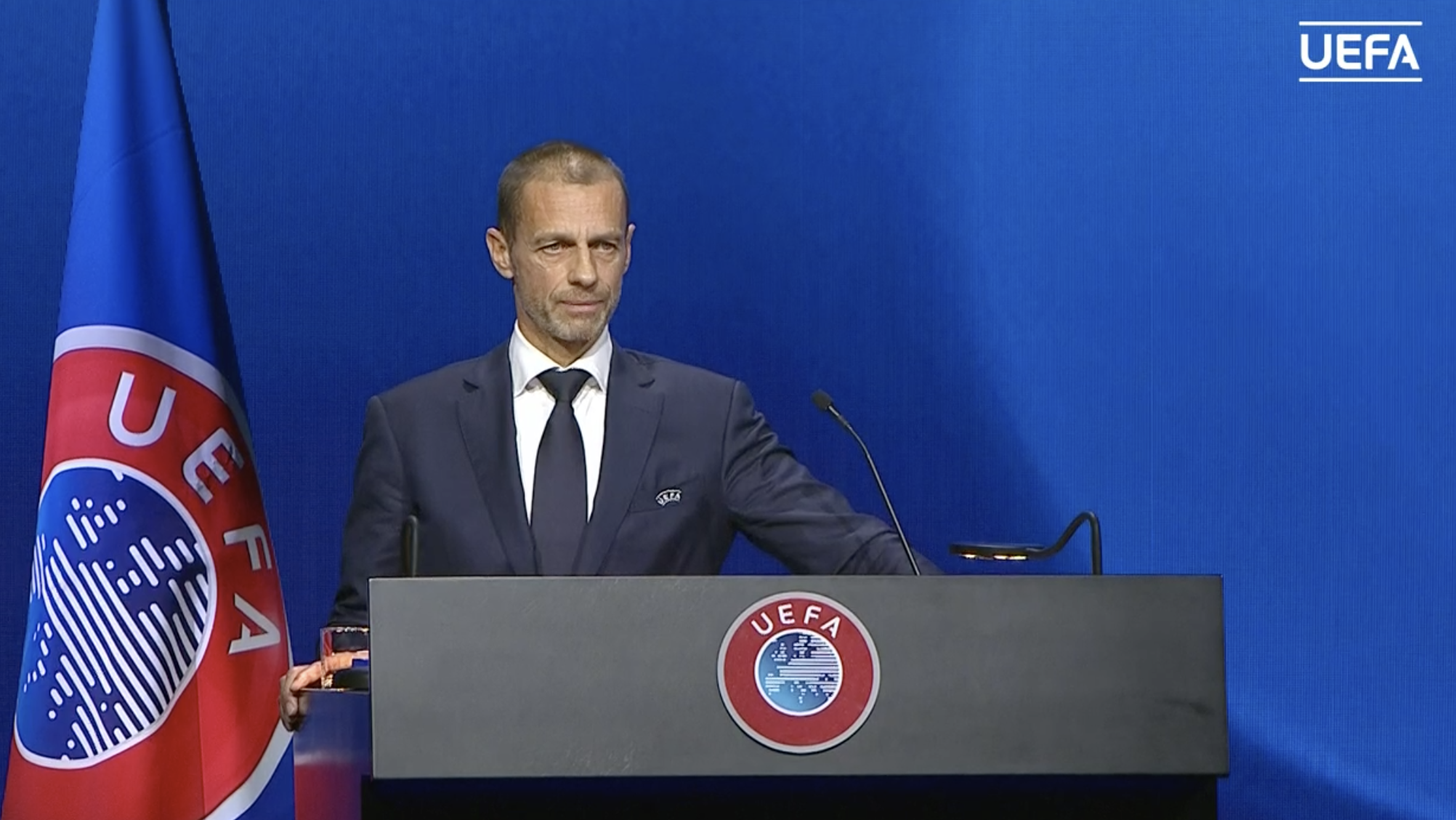By Paul Nicholson
December 29 – In an end of year address, UEFA president Aleksander Čeferin says that the European governing bodies most significant achievement was the protection of the European sports model.
Writing on the UEFA.com website, Ceferin referenced the game-changing threat of the European clubs that for 48-hours challenged the whole structure of the elite club model with the Super League proposal that spectacularly crashed in a wave of opposition from across the sport.
“Last April’s ill-fated attempt to launch a closed ‘super league’, which focused only on filling the bank accounts of a few clubs, threatened values that lie at the very heart of the European sports model and UEFA’s mission. Its demise, driven by political and popular condemnation from across the continent, was our most significant, shared victory in 2021,” said Ceferin.
What he didn’t mention was the currently similar seismic threat to both the European confederation and the structure of the whole world game with FIFA’s proposal for a new international calendar, built on and around what FIFA claims would be increased revenues from a biennial World Cup.
The future of the World Cup will clearly be the big political battle for 2022 and threatens to overshadow, and damage the warm glow and status of the Qatar 2022 World Cup and certainly the 2026 World Cup in North America. The longer the row goes on, the more damage will be done to FIFA and its premium event as the world’s biggest football nations ask increasingly hard question about its real relevance to them, both competitively and also on a cost-benefit basis.
Indeed, if UEFA, Conmebol and pretty much all of the world’s stakeholders from players’ unions to club and league bodies (excluding of course FIFA’s tamed puppets in the leadership of the African confederation), manage to keep FIFA president Gianni Infantino’s personal ambitions in check, Ceferin could again be writing next December about the biggest victory in the year of the Qatar 2022 World Cup not being the winner of that competition, but actually the protection of the World Cup itself and the European sports model.
In a year that saw UEFA stage EURO 2020, the Nations League, the men’s and women’s Champions Leagues, the Europa League, the European Under-21 Championship finals and the Futsal Champions League, Ceferin says “the roll call of ‘winners’ is simply too long”.
“Over the past 12 months, every member of our community has made a telling contribution to these standout successes – national associations, players, domestic leagues, clubs, coaches, match officials, fans, our partners and the media,” he continued.
That community has a huge financial incentive and needs to be fed by some pretty big numbers. Something that UEFA has successfully grafted hard to achieve via its competitions.
“Every four years, our European Championship channels a large proportion of revenue into football development projects across the continent through the HatTrick programme,” reminds Ceferin.
“From 2020-24, €775.5 million in EURO 2020 revenue will benefit all levels of the footballing pyramid – from training male and female coaches to supporting grassroots clubs and nurturing talented young players who dream of competing in future EUROs. Similarly, the model’s commitment to open competition was a key driver in our creation of the Europa Conference League. All 55 national associations are now guaranteed representation in at least one UEFA competition each season.”
This, points out Ceferin, is the European sports model at work. It is also the table that FIFA wants to feast off.
Contact the writer of this story at moc.l1752127184labto1752127184ofdlr1752127184owedi1752127184sni@n1752127184osloh1752127184cin.l1752127184uap1752127184

